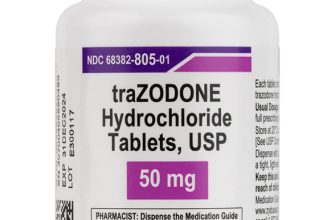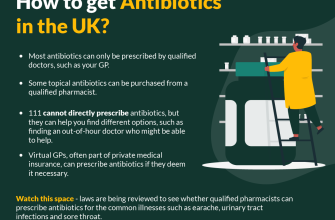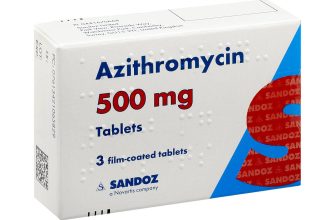No, Augmentin (amoxicillin-clavulanate) is not effective against gonorrhea. Gonorrhea is a sexually transmitted infection (STI) caused by Neisseria gonorrhoeae bacteria, and Augmentin’s antibiotic properties don’t target this specific bacteria effectively.
Current treatment guidelines recommend different antibiotics for gonorrhea, such as ceftriaxone or a combination therapy involving ceftriaxone and azithromycin. These antibiotics have demonstrated superior efficacy against resistant strains of N. gonorrhoeae.
If you suspect you may have gonorrhea, seeking immediate medical attention is crucial. A healthcare professional can accurately diagnose the infection through testing and prescribe the appropriate antibiotic to ensure successful treatment. Delaying treatment can lead to serious complications.
Remember: Self-treating STIs is dangerous. Improper treatment can worsen the infection, increase the risk of developing antibiotic-resistant strains, and lead to long-term health problems. Always consult a doctor for diagnosis and treatment of any STI.
- Does Augmentin Treat Gonorrhea?
- Appropriate Treatment for Gonorrhea
- Seeking Medical Attention
- Augmentin’s Mechanism of Action and Target Bacteria
- Gonorrhea’s Bacterial Cause and Resistance Patterns
- Antibiotic Resistance Mechanisms
- Current Resistance Trends
- Global Surveillance Data
- Impact on Treatment Choices
- Future Directions
- Specific Antibiotics Effective Against Gonorrhea
- Alternative Treatment Options
- Why Augmentin is Ineffective Against Gonorrhea
- Mechanisms of Resistance
- Recommended Treatment
- Consequences of Inappropriate Treatment
- Importance of Proper Gonorrhea Treatment and Testing
- Why Accurate Diagnosis Matters
- Effective Treatment and Follow-up
- Preventing Future Infections
- Consequences of Untreated Gonorrhea
Does Augmentin Treat Gonorrhea?
No, Augmentin (amoxicillin-clavulanate) is not effective against gonorrhea. Gonorrhea is caused by bacteria, Neisseria gonorrhoeae, which has developed resistance to many antibiotics, including Augmentin. Using Augmentin for gonorrhea won’t treat the infection and could lead to antibiotic resistance, making future treatment more difficult.
Appropriate Treatment for Gonorrhea
Gonorrhea requires specific antibiotics to effectively eradicate the infection. Currently, recommended treatments typically involve a single dose of ceftriaxone, administered intramuscularly. Sometimes, a course of azithromycin is also prescribed to address potential co-infections or emerging resistance patterns. Always consult a healthcare professional for diagnosis and treatment of gonorrhea. Self-treating can be harmful and ineffective.
Seeking Medical Attention
If you suspect you have gonorrhea, seek immediate medical attention. Delaying treatment can lead to serious complications, including infertility and disseminated gonococcal infection. A healthcare provider will perform necessary tests to confirm the diagnosis and prescribe the appropriate medication.
Augmentin’s Mechanism of Action and Target Bacteria
Augmentin, a combination of amoxicillin and clavulanate, works by inhibiting bacterial cell wall synthesis. Amoxicillin, a penicillin antibiotic, directly targets the enzymes responsible for building the bacterial cell wall. Clavulanate, a beta-lactamase inhibitor, protects amoxicillin from degradation by bacterial enzymes (beta-lactamases) that often render penicillin-based antibiotics ineffective.
This dual action broadens Augmentin’s spectrum of activity against bacteria producing beta-lactamases. Importantly, while Augmentin is effective against a wide range of bacteria, including some strains of E. coli and H. influenzae, it’s not effective against Neisseria gonorrhoeae, the bacteria responsible for gonorrhea. Gonorrhea treatment requires antibiotics specifically targeting this bacterium, such as ceftriaxone or azithromycin.
Therefore, Augmentin is unsuitable for treating gonorrhea. Always consult a healthcare professional for accurate diagnosis and appropriate treatment of sexually transmitted infections.
Gonorrhea’s Bacterial Cause and Resistance Patterns
Gonorrhea is caused by the bacterium Neisseria gonorrhoeae. This bacteria thrives in warm, moist areas of the body, most commonly the genitals, rectum, and throat. Its ability to rapidly develop resistance to antibiotics poses a significant public health challenge.
Antibiotic Resistance Mechanisms
N. gonorrhoeae employs various strategies to resist antibiotics. These include producing enzymes that break down antibiotics (like beta-lactamases against penicillin), altering antibiotic target sites within the bacteria, and pumping antibiotics out of the cell. This adaptability necessitates regular updates to treatment guidelines.
Current Resistance Trends
Resistance to penicillin, tetracycline, and fluoroquinolones is widespread globally. Cephalosporins, once a reliable treatment option, now show increasing resistance. Azithromycin, often used in combination therapy, is also experiencing rising resistance levels. This requires clinicians to remain updated on local resistance patterns to ensure appropriate treatment.
Global Surveillance Data
The World Health Organization (WHO) and other public health organizations actively monitor N. gonorrhoeae resistance. This surveillance provides crucial data for informing treatment strategies and public health interventions. Regular updates and analysis of this data are vital for controlling the spread of resistant strains.
Impact on Treatment Choices
| Antibiotic | Resistance Level | Clinical Implications |
|---|---|---|
| Penicillin | High | No longer a recommended treatment option. |
| Tetracycline | High | Ineffective in most cases. |
| Fluoroquinolones | High | Should not be used as monotherapy. |
| Extended-spectrum cephalosporins | Increasing | Use should be guided by local resistance data. |
| Azithromycin | Increasing | Often used in combination therapy. |
Future Directions
Research focuses on developing new antibiotics and alternative treatment strategies. These include exploring novel drug targets within the bacteria and investigating non-antibiotic approaches, such as vaccines and immunotherapies. Collaboration between researchers, clinicians, and public health officials is paramount in combating antibiotic resistance in gonorrhea.
Specific Antibiotics Effective Against Gonorrhea
Ceftriaxone is a highly effective single-dose treatment for gonorrhea. It’s administered via intramuscular injection.
Alternative Treatment Options
Azithromycin, a macrolide antibiotic, is often used in conjunction with ceftriaxone to combat potential resistance. This combination therapy improves treatment success rates. However, azithromycin alone is not recommended as a sole treatment for gonorrhea due to rising resistance.
Always follow your doctor’s prescribed regimen. Never self-treat gonorrhea; incorrect treatment can lead to severe complications and antibiotic resistance.
Why Augmentin is Ineffective Against Gonorrhea
Augmentin, a combination antibiotic containing amoxicillin and clavulanate, doesn’t work against gonorrhea because Neisseria gonorrhoeae, the bacteria causing gonorrhea, has developed significant resistance to amoxicillin.
Mechanisms of Resistance
- β-lactamase production: N. gonorrhoeae produces an enzyme called β-lactamase, which breaks down amoxicillin, rendering it ineffective.
- Penicillin-binding protein alterations: Changes in the bacteria’s penicillin-binding proteins reduce amoxicillin’s ability to bind and inhibit cell wall synthesis.
This resistance has spread widely, making Augmentin a poor choice for treating gonorrhea. Treatment guidelines universally recommend other antibiotics.
Recommended Treatment
Current treatment for gonorrhea typically involves antibiotics like ceftriaxone, a third-generation cephalosporin, often administered in combination with azithromycin to address potential resistance to the cephalosporin. Always consult a healthcare professional for diagnosis and treatment. Self-treating gonorrhea is dangerous and could lead to serious complications, including infertility and disseminated gonococcal infection.
Consequences of Inappropriate Treatment
- Treatment failure: Gonorrhea will persist, leading to prolonged infection.
- Increased resistance: Continued use of ineffective antibiotics accelerates the development of antibiotic-resistant strains.
- Severe complications: Untreated or improperly treated gonorrhea can have serious health consequences.
If you suspect you have gonorrhea, seek medical attention immediately for appropriate testing and treatment. Do not rely on Augmentin.
Importance of Proper Gonorrhea Treatment and Testing
Seek immediate medical attention if you suspect gonorrhea. Delaying treatment increases the risk of serious complications.
Why Accurate Diagnosis Matters
- Gonorrhea can cause infertility in both men and women if left untreated.
- Untreated gonorrhea can spread to the bloodstream, leading to life-threatening conditions like disseminated gonococcal infection (DGI).
- Accurate diagnosis ensures you receive the correct antibiotic regimen. Antibiotic resistance is a growing concern, and incorrect treatment can worsen the infection and contribute to resistance.
Testing is the first step. Your doctor will likely perform a urine test or a swab of the infected area. Early detection allows for prompt treatment, minimizing complications.
Effective Treatment and Follow-up
- Your doctor will prescribe antibiotics, typically a single dose or a short course of medication. Strictly adhere to the prescribed dosage and duration; do not stop taking the medication prematurely, even if you feel better.
- After treatment, a follow-up test is crucial to confirm the infection is eradicated. This usually occurs a few weeks after completing your antibiotic course.
- Inform your sexual partners about your diagnosis. They should also get tested and treated to prevent reinfection and further spread of the bacteria.
Preventing Future Infections
- Practice safe sex by consistently using condoms.
- Regular testing, especially if you have multiple partners, is paramount for early detection and prevention.
- If you are sexually active, consider discussing testing frequency with your doctor, based on your individual risk factors.
Remember, responsible sexual health practices and prompt medical intervention are key to managing gonorrhea successfully.
Consequences of Untreated Gonorrhea
Ignoring gonorrhea has serious repercussions for your health. Untreated infection can lead to pelvic inflammatory disease (PID) in women, causing chronic pelvic pain, infertility, and ectopic pregnancies. Men may experience epididymitis, a painful inflammation of the tube that carries sperm.
Disseminated gonococcal infection (DGI), a potentially life-threatening condition, can occur when the bacteria spreads throughout the body. DGI can affect joints, causing septic arthritis, and even the heart, leading to endocarditis. These complications require intensive medical intervention.
Gonorrhea can also increase your risk of contracting or transmitting HIV. The inflammation caused by the infection makes it easier for HIV to enter the bloodstream.
Early diagnosis and treatment are vital. If you suspect you have gonorrhea, seek medical attention immediately. Testing is quick and readily available. Prompt treatment with the appropriate antibiotics can prevent serious, long-term health problems.










